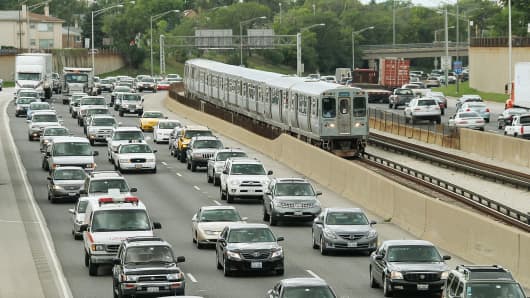One hundred years ago, the big transportation worry in places like New York was heaps of horse manure filling cities at the height of horse-drawn carriage commuting age. There were apocalyptic predictions about the direction in which society was headed if the problem wasn't solved. What no one saw coming was the invention of the automobile.
The automobile has now come full circle. One century's solution to what seemed like an insurmountable problem is now a new century's pressing global threat.
We drive too much, in way too many cars. We lose years of our lives sitting in traffic, wasting fuel while continuing to warm the planet. We all won't ride our bikes to work, or plug in hybrids. Light rail is still a dream in most of the U.S. So what's the answer to an unsustainable transportation system? Disrupting it; changing its reckless course.
(Read More: Pandora's Printer: 3-Disrupting)
Four companies onCNBC's inaugural Disruptor 50 list are attacking this issue: Getaround, Inrix, Uberand Waze, with new models designed to disrupt the status quo in transportation. (There is also SpaceX, which wants to convince us to leave our cars far behind and for good, and one day join an 80,000 person Mars colony.)




